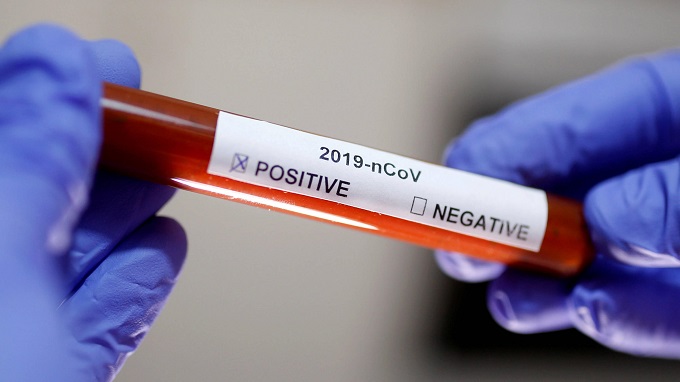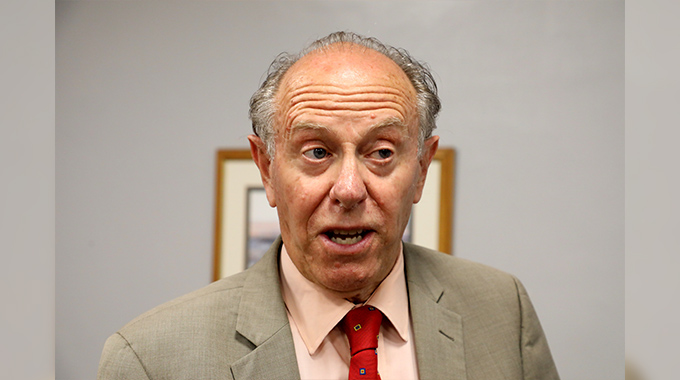George Floyd murder puts spotlight on wild trade racism at UN agency

Emmanuel Koro
The UN agency CITES continues to ignore the urgent need to address racism in international wildlife management. This failure has been evident since the organisation was established in Washington DC 45 years ago.
Unfortunately, the Geneva-based CITES Secretariat seems to see no racism within its wild trade decisions. But it is racism that prevents wildlife-rich African countries from engaging in international trade in ivory and rhino horn.
Why? Because years ago, white Western conservationists apparently decided that black majority African countries could not be trusted to manage their wildlife resources wisely. So the Western conservationists created a UN agency to make the rules for how international trade in wildlife should be determined.
The world cannot deny that racism has been and continues to be experienced in major churches, sports leagues, business enterprises and political institutions. Racism also exists within CITES, the UN agency that is still beholden to Western interests. CITES continues to ignore the urgent need to address racism in international wildlife management. It is no wonder that we continue to witness the USA’s racism-driven command and control of wildlife policies towards Africa.
A high profile racial incident involving the recent killing of one Mr George Floyd, an African-American by a white male policeman, Derek Chauvin, shocked the world. It has inevitably sparked anti-racism demostrations and debates in the US and around the world. The white policeman’s brutal murder of Mr Floyd has shown America how systemic racism still grips many of its institutions.
It has put a spotlight on racism worldwide. Even CITES is notorious for making Western influenced, anti-wildlife trade decisions that deny the wildlife-rich African countries the opportunity to trade in ivory and rhino horn and to hunt, in order to generate wildlife conservation revenue.
Mr Floyd cried for his life saying, “I can’t breathe!” He said that he was going to die but this fell on the deaf ears of officer Chauvin as he pressed his knee for 8 minutes and 46 seconds — into Mr Floyd’s neck effectively cutting oxygen supply to his brain. This sad and horrific murder was committed while three other police officers stood-by.
The irony was that one of the three had been on the force for three days and another for two. Their training officer was Mr Chauvin. Would any of us, in the same position, have been courageous enough to intervene? What if a young teenager had not been on the scene and willing to record the entire ugly incident on his smartphone? The life of another black man would have been snuffed out without the world being wiser.
But we are wiser because of that video, because the killing was so unambiguous and without justification. So much of the USA was on lockdown for 10 weeks and needed an outlet for all the pent-up energy.
Sometimes, the stars align to change what seems unchangeable. Now it looks like the US will make major changes in its police policies. Will CITES also recognise its racist roots and make changes of its own?
“He who passively accepts evil [racism and any form of injustice] is as much involved in it as he who helps to perpetrate it,” said USA civil rights activist the late Dr Martin Luther King Jr. “He who accepts evil without protesting against it is really cooperating with it.”
It can also be argued that by remaining silent in the face of CITES decisions to mirror the white attitudes of Westerners in the animal rights organisations, the rest of us are guilty of perpetuating a form of racism towards the countries of Africa.
These countries have abundant wildlife — some suffering from an over-population and others ruining shrinking habitats. Yet CITES and its paymasters refuse to allow trade in ivory, rhino horn or live rhinos and elephants. Trade would allow African countries to generate wildlife conservation revenue to care for their wildlife needs. But that wouldn’t satisfy the donor dependency relationship in which arrogant Western countries offer African countries wildlife conservation donations to care for their wildlife in return for the control they then exercise.
President Emmerson Mnangagwa, speaking at the Victoria Falls June 2019 Africa Wildlife Economy Summit seems to have made the argument for ivory trade more clearly than it has ever been presented in our lifetime. He told the CITES Secretary-General Ms Yvonne Higguero that Zimbabwe wants the UN agency CITES to allow it to trade in its stockpiled ivory valued at US$600 million to pay for elephant conservation.
He said that the money would enable the economically weak Southern African country to adequately pay for management of its wildlife for the next 20 years.
Sadly, the representatives of the Western countries donor agencies such as the World Bank, the European Union and the United States Agency for International Development (USAID) that heard President Mnangagwa’s international ivory trade appeal, along with those of the Presidents of Botswana, Namibia and Zambia, surprisingly later offered these Sadc countries wild aid instead. The Sadc countries had asked for trade. The Western donor agencies insisted that they be given aid. How can anyone not think that it is being done with an ulterior motive to control African wildlife policies.
By keeping Africa dependent on Western donations, Western countries continue their racist domination of black Africa. It is a flagrant violation of African countries’ sovereign rights to benefit from their wildlife through their sponsored wildlife trade bans. This is frustrating the continent, particularly elephant overpopulated Sadc countries’ efforts to generate wildlife conservation income. It is because of this racist Western attitude towards black Africa why the continent continues to carry the meaningless and frustrating tag of being resource-rich but poor.
Yet Africa doesn’t tell the West to stop trade in environmentally damaging oil. The West tellingly doesn’t dare stop itself, including Iran, Saudi Arabia, and Russia, from trading in oil that causes climate change.
The USA is now the world’s biggest oil producer but chooses not to talk about how oil use contributes to climate change, harming people and planet, including wildlife that they hypocritically claim to love more than Africans who own more wildlife than them.
The racially biased injustices against Africa are so evident that at CITES COP18, the Executive Director of the Los Angeles-based Ivory Education Institute Godfrey Harris spoke against it in ways that embarrassed CITES and Western nations that sponsor the racist decisions within the Convention.
“I have a question for the Western delegates here,” said Mr Harris in his racism protest statement. “What gives you the right to repeat the colonial mistakes of the 19th century? How dare you dictate to Africa or other former colonial areas, how they should manage their natural resources? There seems little difference between the millions spent on corrupt African leadership and the arrogance that Rhodes, Kruger, Bismarck and others brought to Africa with their version of civilisation — Western; their religion — Christianity; and their form of economics — government protected capitalism.”
The Western animal rights groups, together with Western nations present themselves as progressive people while in reality they are ruthless within the CITES decision-making framework, and violate African people’s rights to benefit from their wildlife. They do so through their continued use of the funds that they raise, to sponsor the ban on international trade in wildlife products, including rhino horn and ivory.
“Bribing the leadership of former colonies through board membership, speaking honoraria, luxury travel, training scholarships is wrong,” said Mr Harris in his hard-hitting CITES CoP18 speech, protesting against neocolonialism and racism within the UN Convention. “Using these mechanisms to force poor nations to accept Western attitudes and beliefs about how wildlife should be treated is as racist in approach as any white nationalistic presence.”
In fact, the elephant overpopulated SADC countries warned the CITES Secretariat and member countries at the Geneva August 2019 CITES CoP18 that they would consider pulling out of the Convention in protest of needless and somewhat racist trade restrictions on their sovereign rights to trade in ivory, rhino horn, live elephants and giraffes.
On November 26 2019, they later submitted their protest reservations on the rhino, elephant and giraffe. The CITES Secretariat later approved the Sadc countries’ reservations. This means that the CITES racism fed-up Sadc can actually trade in ivory, rhino horn, live elephants, rhinos and giraffe with countries that are also on reservation for these species or with non-CITES member countries.
Rural communities in SADC that co-exist with wildlife such elephants and rhinos and observers have since applauded SADC countries for going on CITES reservations. It’s an important victory against the racist decisions within the CITES framework, funded by Western governments and animal rights groups.Racism’s negative impact on wildlife management in Africa poses a greater threat to wildlife conservation than poachers. Trade, not aid, will save African wildlife and the people on the continent.
African conservationists have long argued without being listened to by CITES that without benefits from wildlife through trade in ivory, rhino horn, live elephants and rhinos CITES can forget its dream of achieving conservation success in Africa.
The hunting industry is another big revenue earner African countries. Sadly, Western animal rights groups and Western governments particularly the British are making frantic efforts to shut down hunting markets. The hunting industry has since petitioned the British Government not to listen to the wildlife harmful decision to shut down hunting markets. Without benefits from hunting, African rural communities would rather kill wildlife than conserve it.
This happened when villagers of Botswana went on lion revenge killings in defence of their livestock during the unwelcome 10-year Khama hunting ban that ended in 2019. But animal rights groups don’t want to learn that when you take away wildlife benefits from the people, you also take away wildlife conservation need as well as their livelihoods. It seems we sadly live in a selfish world where the powerful and historically privileged race, including the Western animal rights groups never learn about the need to treat other races humanely.
“The Truth is that People for Ethical Treatment of Animals (PETA) shares with racists, the view that black people are lesser creatures than dogs,” said former CITES Secretary General (1982-1990), Mr Eugene Lapointe who is also CEO of the Switerland-based IWMC-World Conservation Trust in a protest statement against Western animal rights groups’ racist attitudes towards Africa. “Nothing will convince me to stand alongside such people.”
Emmanuel Koro is a Johannesburg-based international award-winning environmental journalist who has written extensively on environment and development issues in Africa.












Comments